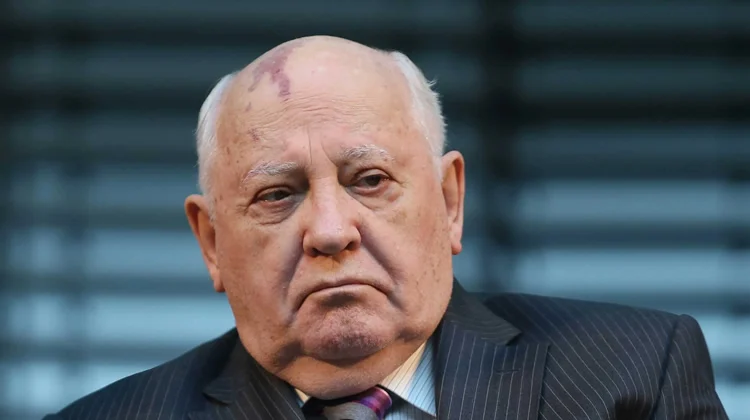International
Mikhail Gorbachev: 10 things people may not know about Soviet Union’s last leader

The last president of the defunct Soviet Union, Mikhail Gorbachev, is dead.
He died on Tuesday in a Moscow hospital at the age of 91.
Gorbachev was one of the two most powerful leaders in the world alongside the United States Ronald Reagan at the peak of his reign as Soviet Union’s president.
On a part shot, Ripples Nigeria compiled 10 things people might not know about the man who ruled the Soviet Union then known as the Union of Soviet Socialist Republic (USSR) from 1985 to 1991, and initiated policies that led to the downfall of communism.
- Mikhail Gorbachev – full name Mikhail Sergeyevich Gorbachev, was born on March 2, 1931 in Privolnoye, Stavropol kray, Russia.
- He was the son of Russian peasants in Stavropol territory (Kray) in South-West Russia.
- He joined the Komsomol (Young Communist League) in 1946 and drove a combine harvester at a state farm in Stavropol for the next four years. In 1952 he entered the law school of Moscow State University and became a member of the Communist Party
- Gorbachev graduated with a degree in law in 1955 and went on to hold a number of posts in the Komsomol and regular party organizations in Stavropol, rising to become first secretary of the regional party committee in 1970.
- In 1978, the deceased was appointed to the Central Committee’s Secretariat for Agriculture, replacing his old friend Kulakov, who had died of a heart attack.
READ ALSO: Hope for end to war as Ukraine president says he has given up on joining NATO
- In 1984, Gorbachev succeeded Andropov as General Secretary of the Communist Party, the de facto head of government in the Soviet Union.
- He became the eighth leader of the Soviet Union following the death of Chernenko on March 10, 1985. After his appointment, Gorbachev set his primary goal of resuscitating the stagnant Soviet economy.
- He initiated a series of events in late 1989 and 1990 that transformed the political fabric of Europe and marked the beginning of the end of the Cold War. Throughout 1989 he voiced his support for reformist communists in Eastern Europe.
- Gorbachev’s efforts to democratize his country’s political system and decentralize its economy led to the downfall of communism and the eventual breakup of the Soviet Union in 1991. He got recognition for ending the Soviet Union’s post-war domination of Eastern Europe with a Nobel Peace Prize in 1990
- He vied for the Russian presidency in 1996 but polled less than one percent of the ballot. He retired from politics after the election and became prominent in later years as a public speaker and member of think tank groups in Russia and abroad.
Join the conversation
Support Ripples Nigeria, hold up solutions journalism
Balanced, fearless journalism driven by data comes at huge financial costs.
As a media platform, we hold leadership accountable and will not trade the right to press freedom and free speech for a piece of cake.
If you like what we do, and are ready to uphold solutions journalism, kindly donate to the Ripples Nigeria cause.
Your support would help to ensure that citizens and institutions continue to have free access to credible and reliable information for societal development.












